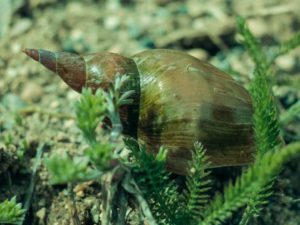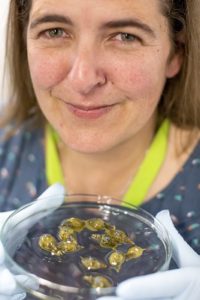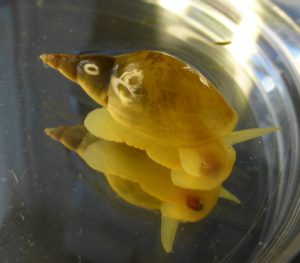
In my last blog I discussed what we can learn from the ant regarding the benefits of collaboration and cooperation in the development of society.
Today I want to examine what we can learn from the snail regarding the detriments of social isolation.
In a recent article in the Independent, Sarah Dalesman explains that while stress negatively impacts the cognitive ability of numerous species, including their ability to learn and remember, the problems arising from stress are personal, and blanket statements regarding species may be misguided. Like humans, Dalesman explains that “not all individuals of a particular species are equally good at cognitive tasks to begin with, and they respond to the effects of stress in different ways.”

Citing research done with pond snails (Lymnaea stagnalis) as an example, Dalesman states that “they, just like other animals (including humans), remember things about different aspects of their environment. They remember smells that are associated with good things to eat, for instance, as well as negative experiences which may be associated with the risk of being eaten themselves. But not all snails are equally good at remembering. Some snail populations, originating from different rivers or ditches, are much better at forming memories than others.”
Dalesman recounts her own research in which she found that a 30-minute operant conditioning training session produced a memory of the stimulus lasting about three hours in snails from some populations, and 24 hours (which is long term memory for snails) in others. She also found that two 30-minute training sessions resulted in a memory lasting a day in snail populations with weak memories, and seven days in populations with strong memories. (Operant conditioning is when a stimulus is applied each time an animal performs a specific behavior; in this case a gentle poke was applied.)
This suggests, according to Dalesman, that some populations are “smarter” than others when it comes to forming memories from training.
Other research Dalesman worked on found that the “smart” pond snails appear to be more hardy in response to some types of stress. When deprived of calcium in the water they live in (which they need to build their shell), smart snails form long-term memory following two training sessions; while long-term memory is blocked in snail populations which form a weak memory.
To be sure, not all stressors are equal. Each stressor can have a different effect on an animal. In humans, for example, different types of stress can cause short-term emotional problems, while others can lead to long-term physical health issues.

In snails, researchers found that stress arising from social isolation or loneliness can change the way snails form memories.
While we often think of social isolation as a human problem, it can affect all types of animals, including snails. Snails’ reproduction is already known to be affected by social isolation. Snails are hermaphrodites (they have both male and female reproductive organs), and normally mate in both the male and female role when they meet a partner. But researchers have found that when they are isolated for a week they prefer to mate only in the male role.
In Dalesman’s recent study she wanted to find out how social isolation affects a snail’s memory. She tested operant conditioning memory in eight different populations, both when they were grouped together and following a week of isolation. As found in her previous work, some snail populations formed weak memories when held in groups, while others formed strong memories.
Following isolation, the snails that formed weak memories appeared unaffected. They were still able to form memory equally as well as when they were in groups. However, the smart snails failed to form long-term memories when isolated. These snails appeared far more sensitive to the effects of being alone, so in isolated conditions the snails that normally formed the weaker memories appeared to be the smart ones.
This research raises two important considerations when looking at the cognitive differences among individuals of any species:
- First, the social environment doesn’t affect all individuals the same way. Not all will experience the same levels of stress when isolated.
- Second, our conclusions about which individuals are “smart” may be highly dependent on the environment in which they are tested.
Although this study focused on snails, it may tell us a lot about memory in other animals, including humans. Snail memory is affected by the environment in the same way as other species.
For example, things that are beneficial to memory formation in mammals, such as plant flavonols found in red wine and dark chocolate, also improve snail memory. Similarly, different types of stress that negatively affect memory in mammals, including social isolation, also have negative effects on snails’ memory.
The causes and consequences of individual differences in cognitive ability in animals is currently of great interest to researchers globally, and the focus of a recent special issue of the Philosophical Transactions of the Royal Society B: Biological Sciences. Because we know about the similarities in the response to stress in snails and other species, Dalesman hopes her work will lead towards a better understanding of the effects of stress on cognition in other animals, including humans.
Sarah Dalesman is a lecturer at Aberystwyth University.
